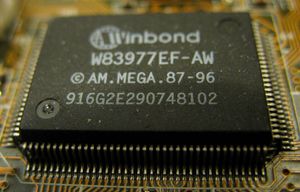Welcome to coreboot: Difference between revisions
Jump to navigation
Jump to search
mNo edit summary |
mNo edit summary |
||
| Line 9: | Line 9: | ||
|- | |- | ||
|style="vertical-align:top"| | |style="vertical-align:top"| | ||
'''<span style="font-variant:small-caps;">Benefits</span>''' — | '''<span style="font-variant:small-caps;">[[Benefits]]</span>''' — | ||
<small>There are many reasons for using LinuxBIOS.</small> | <small>There are many reasons for using LinuxBIOS.</small> | ||
<hr /> | <hr /> | ||
| Line 95: | Line 95: | ||
<br clear=all /> | <br clear=all /> | ||
'''<span style="font-variant:small-caps;">News</span>'''<hr /> | '''<span style="font-variant:small-caps;">[[News]]</span>'''<hr /> | ||
<small> | <small> | ||
* '''2007/06/13:''' [[News#2007.2F06.2F13_AMD_DB800_.28Salsa.29_now_supported|AMD DB800 (Salsa) now supported]] | * '''2007/06/13:''' [[News#2007.2F06.2F13_AMD_DB800_.28Salsa.29_now_supported|AMD DB800 (Salsa) now supported]] | ||
Revision as of 23:19, 12 June 2007
|
LinuxBIOS is a Free Software project aimed at replacing the proprietary BIOS (firmware) you can find in most of today's computers. It performs just a little bit of hardware initialization and then executes a so-called payload, for example a Linux kernel, FILO, GRUB2, OpenBIOS, Open Firmware, SmartFirmware, GNUFI (UEFI), Etherboot, ADLO (for booting Windows 2000 and OpenBSD), Plan 9, or memtest86.
|

Contact
|





